Global Educational Tourism Market - Comprehensive Data-Driven Market Analysis & Strategic Outlook
The global educational tourism market will gradually influence other sectors of international travel and education to see the experience of learning in a different way. It will be a shift from traditional classrooms and textbooks, merging cultural experience with academic curiosity. The market would not just be student-centric but also include working professionals seeking global perspectives and institutions willing to broaden their educational outreach network. By associating places with educational experiences, it will bridge the gap between learning and living, thus going deeper than the usual schooling.
- The global educational tourism market valued at approximately USD 521.1 Billion in 2025, growing at a CAGR of around 13.5% through 2032, with potential to exceed USD 1264.9 Billion.
- Primary account for nearly 10.1% market revenues, driving innovation and expanding applications through intense research.
- Key trends driving growth: Growing demand for cross-cultural learning and international exposure among students., Increasing government initiatives supporting global education exchange programs.
- Opportunities include Rising adoption of virtual and hybrid educational tours enhancing accessibility and global reach.
- Key insight: The market is set to grow exponentially in value over the next decade, highlighting significant growth opportunities.
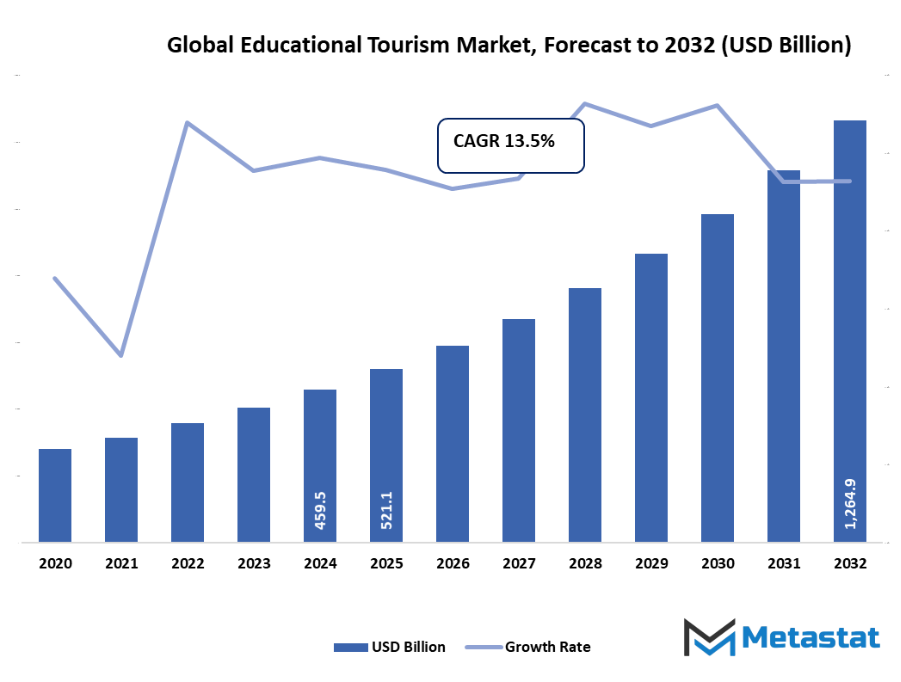
In what ways is educational tourism changing the methods students and professionals get international exposure and hands-on learning experiences? Are innovations in technology and virtual learning turning the idea of studying abroad into something obsolete? Also, as places vie for the attention of learners, what aspects will decide the countries that become the new centers of educational tourism?
This industry is going to see such collaborations between universities, cultural centers, and tourism boards in the upcoming years to design the programs that offer both academic credits and hands-on experience. Through these programs, the travelers will be able to learn history in the place where it happened, learn science from nature, and learn the culture through the first-hand experience. The learning process will establish a strong emotional and intellectual bond between students and the places thereby, through this, students will be motivated to be responsible and respectful travelers.
Market Segmentation Analysis
The global educational tourism market is mainly classified based on Education, Occupation, Purpose.
By Education is further segmented into:
- Primary: Traveling and learning a young age together promote the child's natural curiosity and wide range of thinking. The mingling with different cultures and languages in early schooling forms good attitudes towards learning. Traveling trips destined for educational purposes will explain the subjects of science, art, and history in a simple way and through fun activities thus creating great and last memories as well as building the confidence for the next academic steps.
- Secondary: The secondary stage of educational travel is more for understanding the subject and personal goals. Students are likely to go to museums, science centers, and historical places to learn the lessons offered in the classroom not only theoretically but also through the surroundings. All the experiences are at the same time offering a better decision-making process in the choice of future studies and facilitating the development of group work skills, independence, and the ability to communicate respectfully with different communities.
- College: Travel programs during the college years provide hands-on learning and exposure to international academic standards. Enrolling in short courses, internships, and exchange programs allows one to gain practical skills and cultural understanding. The majority of travel services that focus on providing education support university planning and safety, which in turn helps the global educational tourism market to gradually capture the attention of universities and training groups.
- Post-Graduation: The higher educational travel is, the more it unblocks the organization of research, career-connected networking, and specialized training. Researchers travel to international conferences, laboratories, or remote locations to not only gain but also to produce knowledge and collect empirical data. This kind of traveling fosters a productive collaboration among institutions, which results in the development of innovative solutions to problems and the providing of stronger career guidance through the experience gained in classes outside the traditional classroom settings.
By Occupation the market is divided into:
- Students: The global educational tourism market will be mainly a platform for students who desire to witness academic excellence and cultural prosperity in foreign countries. Study tours, workshops, and exchange programs will empower students to broaden their knowledge, learn self-reliance, and gain international exposure apart from the regular classroom environment.
- Teachers: The market will cater to educators who are looking for innovating their teaching methods and curriculum design. Participation in training workshops, cross-cultural teaching experiences, and professional development tours will enable teachers to introduce new concepts and practice the educational methods followed internationally.
- Government Officials: The global educational tourism market will engage government officials in policy-learning and administration exchange activities. These activities will not only help in consolidating the partnerships between the countries but also facilitate educational reform and efficient policy-making that is influenced by the international education and institutional practices models.
- Corporate Managers: The global educational tourism market will attract the attention of corporate managers seeking international leadership courses and cross-industry training. This kind of educational travel will expose corporate leaders to global business environments and practices and thus will improve their managerial skills, strategic thinking, and creativity.
- Enterprise Owners: The market will give rise to entrepreneurs through educational tours to discover business innovation and sustainability models. Working on international case studies and getting familiar with entrepreneurial ecosystems will ignite the entrepreneurs with new ideas for business growth as well as competitive expansion.
- Workers: The market will propose vocational and skill-based career travel programs for employees. Practical training workshops, factory visits, and trade seminars will help employees to upgrade their technical skills and be acquainted with global production standards, thus, enhancing their employability and productivity.
- Others: The global educational tourism market is also open to non-traditional players such as researchers, freelancers, and hobbyists, apart from the regular ones mentioned above. These people will embark on educational travels for self-enrichment, skill development, and intercultural education and will contribute to the creation of a more educated and networked global society.
By Purpose the market is further divided into:
- Academic: The International Educational Tourism Market will use global study programs, workshops, and site visits to strengthen educational instruction. Exposure to different educational systems will spark intellectual curiosity and critical thinking skills besides fostering academic cooperation among global institutions.
- Professional: The global educational tourism market will transform through professional education initiatives such as corporate training, industry tours, and global conferences. These projects will facilitate knowledge transfer, spark innovations, and nurture leadership skills, thus, forming an educated global workforce.
- History and Cultural: The market will include history and culture education through heritage tours, art classes, and museums. Educational travel of this sort will help the students in gaining the love of different cultures, historical knowledge, and respect for global traditions and identities.
- Others: The global educational tourism market is also going to be involved with specialized reasons such as learning a language, being aware of the environment, and studying humanitarian subjects. These programs will provide students with well-rounded experiences as they merge travel with their personal development and community service.
|
Forecast Period |
2025-2032 |
|
Market Size in 2025 |
$521.1 Billion |
|
Market Size by 2032 |
$1264.9 Billion |
|
Growth Rate from 2025 to 2032 |
13.5% |
|
Base Year |
2024 |
|
Regions Covered |
North America, Europe, Asia-Pacific, South America, Middle East & Africa |
Geographic Dynamics
Based on geography, the global educational tourism market is divided into North America, Europe, Asia-Pacific, South America, and Middle East & Africa. North America is further divided in the U.S., Canada, and Mexico, whereas Europe consists of the UK, Germany, France, Italy, and Rest of Europe. Asia-Pacific is segmented into India, China, Japan, South Korea, and Rest of Asia-Pacific. The South America region includes Brazil, Argentina, and the Rest of South America, while the Middle East & Africa is categorized into GCC Countries, Egypt, South Africa, and Rest of Middle East & Africa.
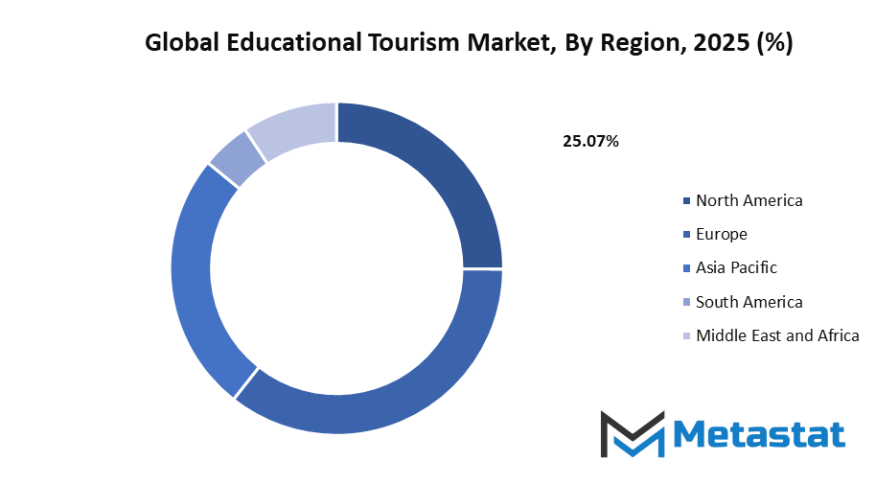
Competitive Landscape & Strategic Insights
Wherever learning meets exploration, The global educational tourism market has become a vibrant space. It gives students, educators, and even lifelong learners, the means to widen their knowledge base outside the confines of a classroom while familiarizing themselves with different cultures and nature. The concept of mixing education with travel has become a trend rapidly since many people want experiences that not only develop their intellect but also deepen their knowledge of the world. The rising demand for educational journeys is thus pleading with institutions, consultants, and travel operators to create programs that offer academic and cultural experiences in equal measure.
The market represents a fascinating combination of global leaders and rapidly expanding regional players, with each of them bringing in diverse possibilities for this market. On the one hand, we see the likes of AAI Edutourz, ACIS Educational Tours, ATG Travel, Atlantis Erudition & Travel Services, Capital Tours, Inc., and Education Resources Network (ERN) that have established their good names due to worldwide collaborations and customized travel experiences. Furthermore, EF Education First and EF Educational Tours have been very instrumental in encouraging education through international exchange programs that enable students to learn in different parts of the world.
On the other hand, we have regional players such as Futures Abroad, GoIreland, Intelligent Partners, IQ Education Consultants, Kesari Tours Pvt. Ltd., M.K.H Consultancy Services, Meridean Overseas, and ProEd DMCC who are transforming local markets by zeroing in on particular educations and the cultural aspects of those areas. Their customer-specific method enables them to have a direct link with students and schools, thereby producing experiences that are a true reflection of local interests and at the same time satisfying international criteria. In addition, organizations like Global Volunteers and World Expeditions Travel Group Pty Ltd are making education socially appealing by integrating academic travel with the giving of time, skills, and services thus enabling the participants to have the learning experience coupled with the feeling of contribution.
On account of the competition between these firms, there has been much innovation in the manner educational tourism programs come into existence and are subsequently implemented. These have ranged from language acquisition trips and study-abroad programs to immersion programs in other cultures and environmental education tours thus drawing in people of different ages and educations from all over the world. To ensure the attainment of this goal, security, ease of access, and affordability are what are being given prominence by many such organizations. The widening of the target market through the elimination of barriers has resulted in the sector being noticed not only by those directly involved, that is, students and their parents, but also by the authorities and organizations that let through the incubator of their potential, a better future of global understanding.
According to Metastat Insight, The global educational tourism market is a good example of how combining education with travel is reshaping people's learning and world experiences. The more the organizations such as Qadri International Education Consultancy, Stratix Consultants, and others that support this cause, the market will be characterized by enhanced collaboration and diversity. One of the major effects of educational tourism is that it keeps opening up new communication channels between diverse cultures, it also promotes global citizenship, and, importantly, it still provides the impetus for a profound love of knowledge that is beyond the realm of the textbooks. The industry’s expansion narrative is essentially a very basic fact — learning gets elevated when the learner is out there in the big wide world and not in the classroom.
Market Risks & Opportunities
Market Opportunities & Risks
Restraints & Challenges: High costs of travel and accommodation will keep lower-income groups from participating in the market. Inflation and global economic uncertainty will reduce the disposable income of students and institutions, so they will be reluctant to spend on educational excursions abroad. As the cost of air travel, accommodation, and ancillary charges continues to increase, educational tours will become unaffordable for the majority, thus the number of participants will decrease. This limitation will have an impact on the total growth of education travel programs in the developing world, where the issue of poverty is more severe.
Visa restrictions and complex international travel policies will be a serious challenge to the market. Delayed approval processes and limited visa quotas will reduce cross-border student mobility. Additionally, changing immigration policies in some countries will create uncertainty among organizers and participants. Such administrative bottlenecks will discourage potential travelers and slow down market development. It will take streamlining visa processes and encouraging educational exchange through government partnerships to overcome such obstacles.
Challenges: The increasing use of virtual and hybrid educational tours will increase accessibility and global coverage for the global educational tourism market. Technological integration will enable institutions to create experiential learning without location constraints. Learners will visit global locations and academic centers in real time using virtual platforms and digital classrooms. This model will minimize costs and increase participation for individuals who cannot travel physically. As hybrid learning becomes integral to learning, the industry will see increased inclusivity and long-term viability, combining ancient travel with contemporary digital interaction.
Forecast & Future Outlook
- Short-Term (1–2 Years): Recovery from COVID-19 disruptions with renewed testing demand as healthcare providers emphasize metabolic risk monitoring.
- Mid-Term (3–5 Years): Greater automation and multiplex assay adoption improve throughput and cost efficiency, increasing clinical adoption.
- Long-Term (6–10 Years): Potential integration into routine metabolic screening programs globally, supported by replacement of conventional tests with advanced biomarker panels.
Market size is forecast to rise from USD 521.1 Billion in 2025 to over USD 1264.9 Billion by 2032. Educational Tourism will maintain dominance but face growing competition from emerging formats.
Moreover, the global educational tourism market will leverage technology as a supportive tool to blend online and offline experiences for hybrid learning tours. Engaging in virtual introductions, doing interactive assignments, and receiving digital qualifications will bring the learners closer without compromising the essence of experiential learning. The combination of education with traveling will not only be a way for knowledge acquisition but also be a facilitator for the growth of local communities that welcome these initiatives.
Report Coverage
This research report categorizes the global educational tourism market based on various segments and regions, forecasts revenue growth, and analyzes trends in each submarket. The report analyses the key growth drivers, opportunities, and challenges influencing the global educational tourism market. Recent market developments and competitive strategies such as expansion, type launch, development, partnership, merger, and acquisition have been included to draw the competitive landscape in the market. The report strategically identifies and profiles the key market players and analyses their core competencies in each sub-segment of the global educational tourism market.
Educational Tourism Market Key Segments:
By Education
- Primary
- Secondary
- College
- Post-Graduation
By Occupation
- Students
- Teachers
- Government Officials
- Corporate Managers
- Enterprise Owners
- Workers
- Others
By Purpose
- Academic
- Professional
- History and Cultural
- Others
Key Global Educational Tourism Industry Players
- AAI Edutourz
- ACIS Educational Tours
- ATG Travel
- Atlantis Erudition &Travel Services
- Capital Tours, Inc.
- Education Resources Network (ERN
- Educational Tours, Inc.
- EF Education First
- EF Educational Tours
- Fact
- Futures Abroad
- Global Educational Travel
- Global VolunteersGoIreland
- GVI Company
- Intelligent Partners
- IQ Education Consultants
- Kesari Tours Pvt. Ltd.
- M.K.H Consultancy Services
- Meridean Overseas
- ProEd DMCC
- Qadri International Education Consultancy
- Road Scholar
- Stratix Consultants
- World Expeditions Travel Group Pty Ltd
WHAT REPORT PROVIDES
- Full in-depth analysis of the parent Industry
- Important changes in market and its dynamics
- Segmentation details of the market
- Former, on-going, and projected market analysis in terms of volume and value
- Assessment of niche industry developments
- Market share analysis
- Key strategies of major players
- Emerging segments and regional growth potential



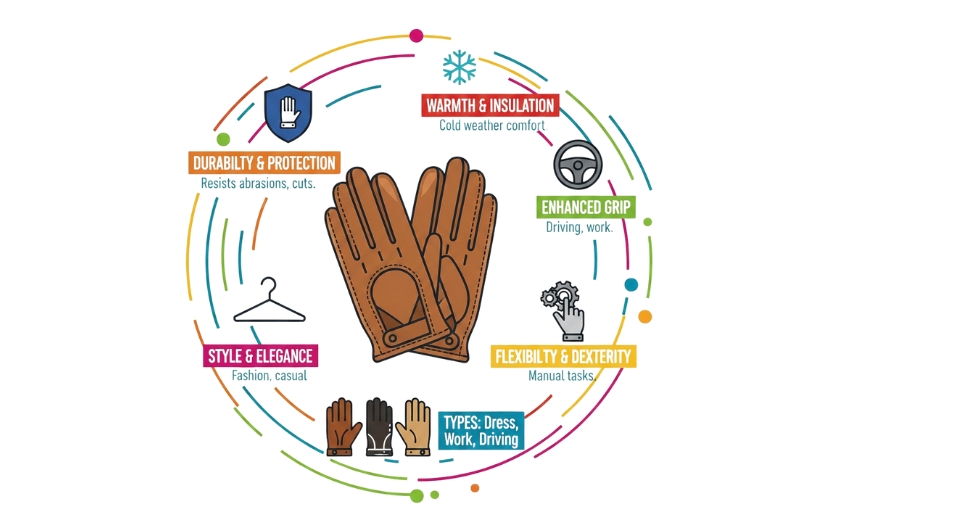

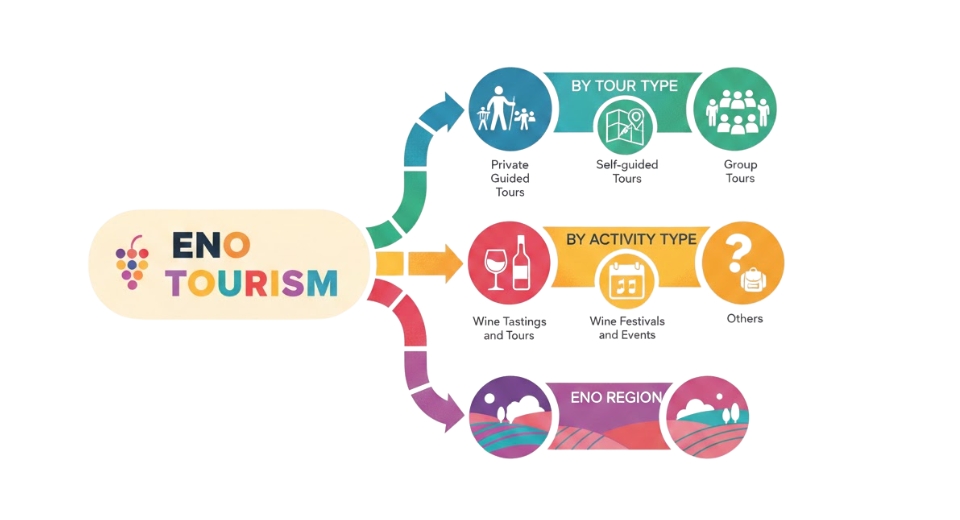
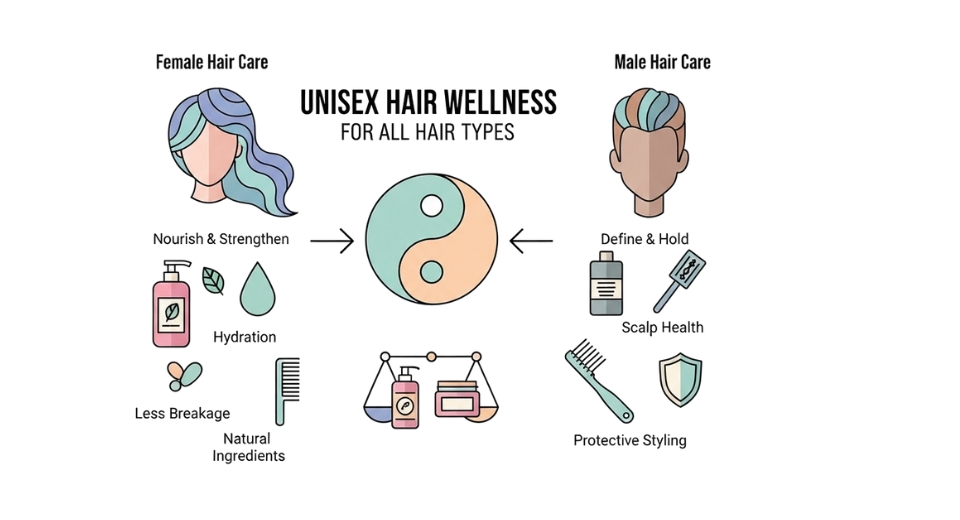

 US: +1 3023308252
US: +1 3023308252






